Category: Dental Implants
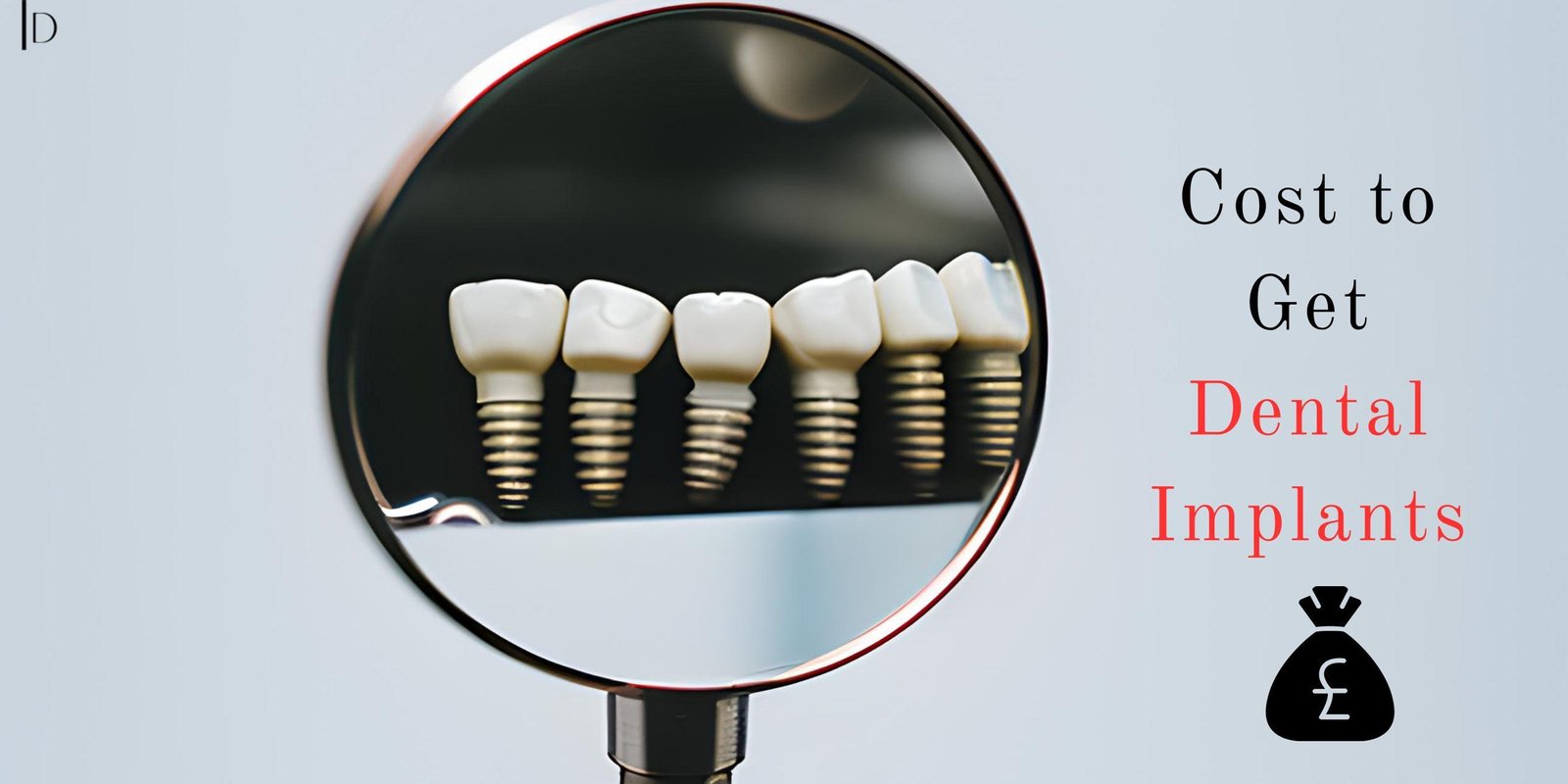
How Much Does It Cost to Get Dental Implants?
August 14, 2023When it comes to restoring a beautiful smile and maintaining optimal oral health, dental implants have emerged as a popular and effective solution. Whether you’ve lost a tooth due to an accident, injury, or other reasons, dental implants can provide a lifelike replacement that feels and functions just like a natural tooth. However, one important question that often arises is, “How much does it cost to get dental implants?” In this article, we’ll delve into the various factors that influence the cost of dental implants, allowing you to make an informed decision about this valuable investment in your oral well-being.
Understanding Dental Implants: A Brief Overview
Before delving into the cost considerations, let’s briefly understand what dental implants are. Dental implants are titanium posts that are surgically implanted into the jawbone to replace missing teeth. Over time, the implant fuses with the bone, providing a sturdy foundation for attaching custom-made crowns that resemble natural teeth.
Factors Influencing the Cost of Dental Implants
- Number of Implants: The number of dental implants required significantly impacts the overall cost. Whether you need a single implant or multiple implants will directly influence the final expense.
- Type of Restoration: The type of restoration placed on the implant also affects costs. While a single crown is less expensive than a full arch of replacement teeth, it’s essential to consider your specific needs and preferences.
- Location: The cost of dental implants can vary based on your geographic location. Dental services in metropolitan areas tend to be pricier than in rural areas due to differences in overhead costs.
- Expertise of the Dental Professional: The skill and experience of the dentist or oral surgeon performing the procedure will impact the cost. Highly experienced professionals may charge more for their services.
- Preparatory Procedures: In some cases, preparatory procedures like bone grafting or sinus lifts might be necessary to ensure a successful implant placement. These procedures can add to the overall cost.
- Material Quality: The quality of materials used for the implant and restoration can affect the cost. While higher quality materials may be more expensive upfront, they often provide better long-term results.
Is It Worth the Investment?
While dental implant may seem like a significant investment upfront, it’s important to consider the long-term benefits. It offer improved oral functionality, aesthetics, and comfort compared to other tooth replacement options. They also have a remarkable success rate and can last a lifetime with proper care. Investing in dental implant means investing in your oral health and quality of life.
Insurance and Financing Options
Many dental insurance plans do not fully cover the cost of dental implant, but some may offer partial coverage. It’s crucial to check with your insurance provider to understand what is covered under your plan. Additionally, many dental offices offer financing options, allowing you to spread out the cost over time.
Final Thoughts
When contemplating the costs of dental implants, it’s important to remember that you’re not just paying for a tooth replacement; you’re investing in your confidence, oral health, and overall well-being. While the initial cost may seem daunting, the benefits and longevity of dental implants often outweigh the expenses. To get an accurate estimate for your specific situation, consult with a dental professional who can provide personalised recommendations and a detailed cost breakdown. Remember, a healthy, confident smile is truly priceless.

5 Tips for Finding Affordable Dental Implants
July 25, 2023Are you in need of dental implants but worried about the high costs? Dental implants can be a significant investment in your oral health and overall well-being. But finding affordable options can be challenging. However, with some research and careful planning, you can discover more budget-friendly alternatives without compromising on quality. In this blog post, we’ll provide you with five essential tips to help you find affordable dental implants.
1. Compare Prices from Different Dental Clinics
The first step in finding affordable dental implants is to do your homework. Reach out to various dental clinics in your area and inquire about their implant services’ prices. Keep in mind that the cost of dental implants may vary depending on factors such as the clinic’s location. The dentist’s expertise, and the materials used. By comparing prices, you can get a better idea of the average cost and find a clinic that offers competitive rates.
2. Look for Dental Schools and Teaching Hospitals
Dental schools and teaching hospitals often offer dental services, including dental implants, at reduced prices. Although the procedures are performed by dental students under the supervision of experienced faculty, you can rest assured that the treatment quality remains high. These institutions aim to provide affordable dental care while offering students valuable hands-on experience. If you’re comfortable with the idea of receiving treatment from a supervised student, this option can be an excellent way to save money on dental implants.
3. Inquire About Financing and Payment Plans
Dental implants’ upfront cost might seem overwhelming, but many dental clinics offer financing options and payment plans to help ease the financial burden. These plans allow you to pay for the treatment in instalments, making it more manageable for your budget. Before committing to a dental implant procedure, discuss payment options with your chosen dental clinic and choose a plan that fits your financial situation best.
4. Explore Dental Tourism
Dental tourism is an increasingly popular option for individuals seeking affordable dental treatments, including dental implants. Many countries offer high-quality dental services at significantly lower prices than in more expensive regions. If you’re open to travelling abroad for your dental implants, consider researching reputable dental clinics in countries known for their dental tourism industry. Be sure to account for additional travel expenses when weighing this option, but even with these costs factored in, you may still save money compared to getting the treatment at home.
5. Inquire About Insurance Coverage or Discount Programs
While dental implants may not be fully covered by all insurance plans, some policies offer partial coverage or discounts for certain dental procedures. Review your dental insurance policy to see if dental implants are included or if there are any relevant discounts available. If you don’t have insurance coverage for dental implants, inquire about discount programs that some dental clinics offer. These programs can significantly reduce the cost of your treatment.
Conclusion
Finding affordable dental implants may require some effort and research, but it’s well worth it for the long-term benefits to your oral health and self-confidence. Remember to compare prices from different dental clinics, explore dental schools and teaching hospitals, inquire about financing and payment plans, consider dental tourism if possible, and explore insurance coverage or discount programs. By following these five tips, you’ll increase your chances of finding a cost-effective solution for your dental implant needs without compromising on quality. Prioritise your oral health and take the first step towards a brighter smile today!
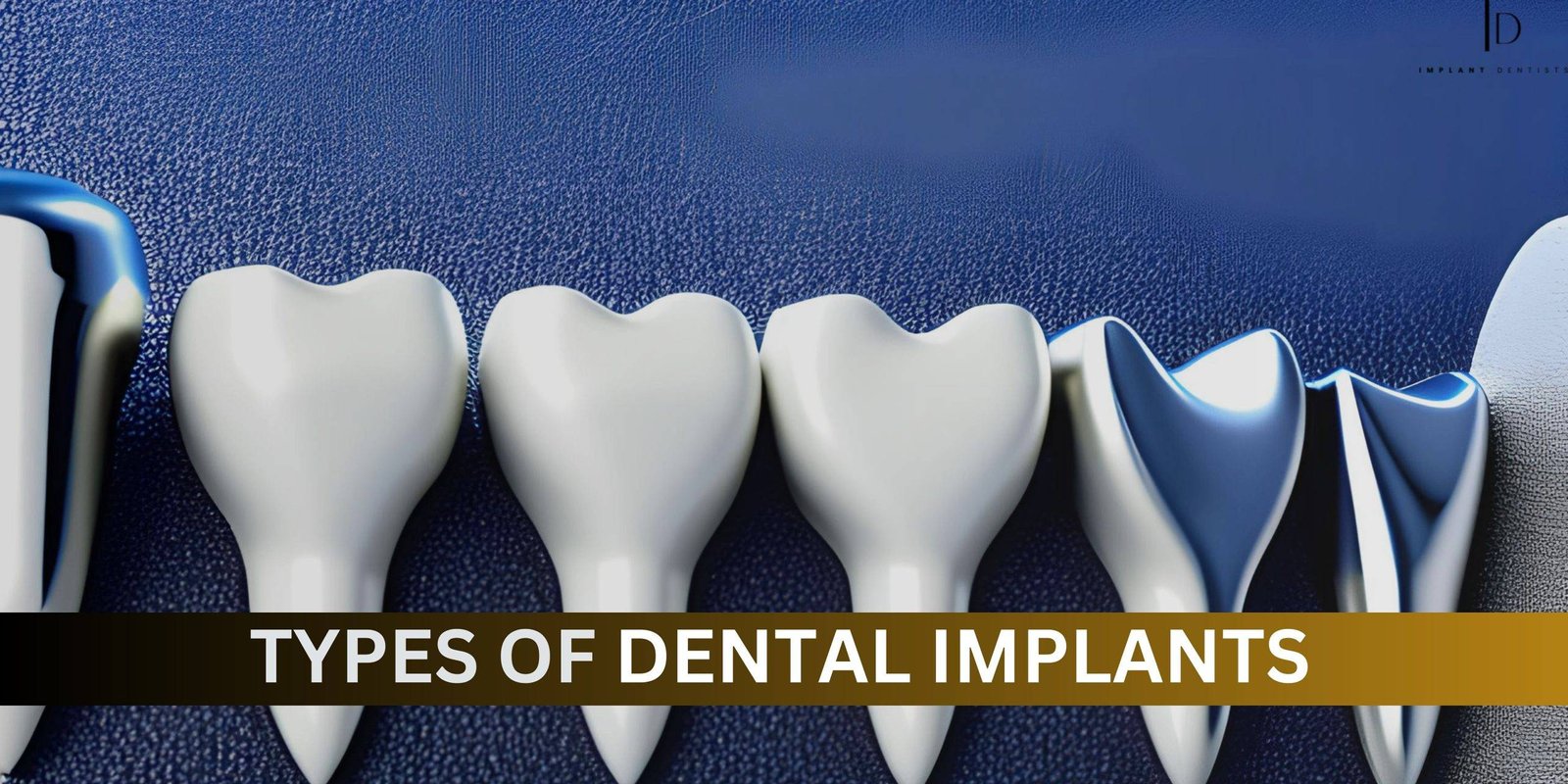
Different Types of Dental Implants: Which One is Right for You?
July 17, 2023When it comes to restoring missing teeth, dental implants have revolutionised the field of dentistry. They provide a durable and natural-looking solution that can significantly enhance your smile and improve your oral health. However, not all dental implants are the same. In this blog, we will explore the different types of dental implants available, helping you understand which one may be the right choice for you.
Understanding Dental Implants
Before diving into the specific types of dental implants, it’s important to have a basic understanding of what they are and how they work. Dental implants are artificial tooth roots made of titanium that are surgically placed into the jawbone. They serve as a foundation for replacement teeth, such as crowns, bridges, or dentures. Dental implants provide a stable and long-lasting solution, mimicking the function and appearance of natural teeth.
Traditional Implants
Traditional dental implants, also known as standard implants, are the most common type of dental implants used today. They consist of two main components: the implant itself, which is surgically placed into the jawbone, and the abutment, which connects the implant to the replacement tooth. Traditional implants are versatile and can be used to replace a single tooth, multiple teeth, or even a full arch of teeth.
Mini Implants
Mini implants are smaller in diameter compared to traditional implants. They are an alternative for patients who have limited bone density or require less invasive treatment. Mini implants can often be placed without the need for bone grafting, making them a suitable option for those with insufficient jawbone structure. While they may not be as versatile as traditional implants, mini implants can effectively support single-tooth restorations and stabilise dentures.
All-on-4 Implants
All-on-4 implants, as the name suggests, are designed to replace a full arch of teeth with just four implants. This innovative technique maximises the use of available bone and eliminates the need for individual implants for each missing tooth. All-on-4 implants offer a quicker treatment process and are an excellent option for patients who have experienced significant tooth loss or have inadequate bone volume.
Immediate Load Implants
Immediate load implants, also known as same-day implants, allow for the placement of a temporary tooth or restoration immediately after the implant surgery. This means that patients can leave the dental office with a functional tooth on the same day. Immediate load implants can be advantageous for individuals who want to avoid the inconvenience of a waiting period between implant placement and receiving their final restoration.
Zygomatic Implants
Zygomatic implants are an advanced option for patients who have severe bone loss in the upper jaw. Instead of being anchored in the jawbone, zygomatic implants are anchored in the zygomatic bone, which is denser and provides a secure foundation for the implant. This type of implant eliminates the need for bone grafting procedures, making it a viable solution for individuals with significant bone resorption.
Choosing the Right Dental Implant
Selecting the right dental implant depends on various factors, including your oral health, bone structure, and specific lost tooth replacement needs. It is essential to consult with a qualified dentist or oral surgeon who specialises in implant dentistry. They will evaluate your unique situation, perform necessary examinations, and recommend the most suitable implant option for you.
Conclusion
In conclusion, dental implants offer a reliable and aesthetically pleasing solution for individuals with missing teeth. Whether you require a single tooth replacement or a full arch restoration, there are various types of dental implants available to suit your specific needs. By consulting with a dental professional and considering factors such as bone density, oral health, and desired outcome, you can determine which type of dental implant is right for you. Remember, choosing the right implant is a crucial step towards achieving a beautiful and functional smile that can last a lifetime.
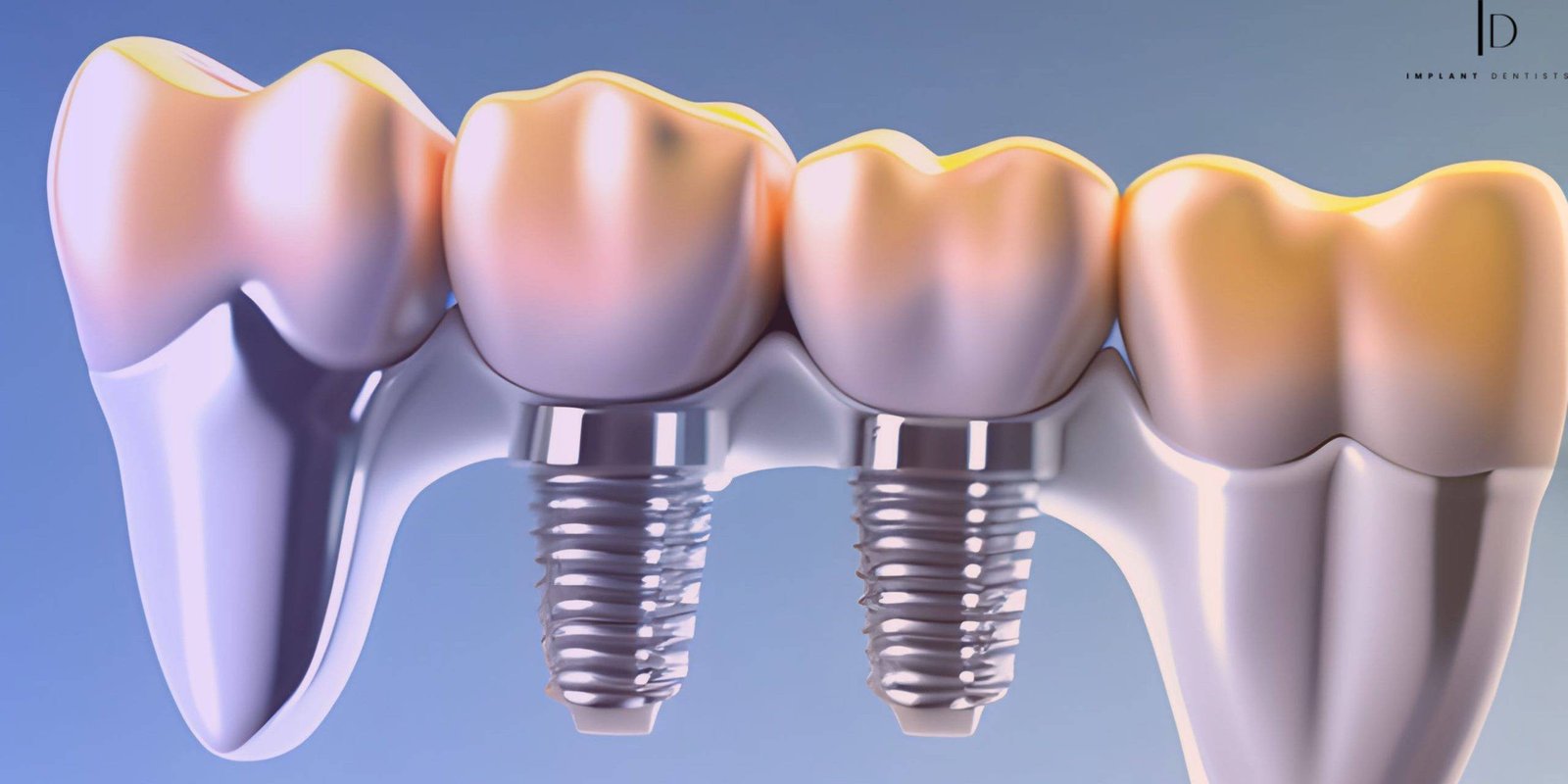
Are Dental Implants Best for You? Factors to Consider Before Making a Decision
July 10, 2023If you are considering dental implants as a solution for missing teeth, it is important to carefully evaluate whether they are the right choice for you. Best dental implants are a long-term investment in your oral health and general well-being and have a number of advantages. However, several factors should be taken into consideration before making a decision. In this article, we will explore these factors to help you determine if dental implants are the right option for you.
Surgical dentists place titanium posts, called dental implants, into the jawbone to replace missing tooth roots. These posts act as anchors for dental prostheses such as crowns, bridges, or dentures. The implant fuses with the jawbone through a process called osseointegration, providing a stable and durable foundation for the replacement teeth.
Benefits of Dental Implants
Before delving into the factors to consider, let’s first understand the benefits of dental implants:
- Improved Appearance: Dental implants enhance your smile and facial appearance by closely resembling real teeth.
- Enhanced Oral Function: Implants restore the ability to bite and chew properly, allowing you to enjoy a wider range of foods.
- Longevity: Dental implants are a long-term investment since, with proper care, they can last a lifetime.
- Preservation of Jawbone: Implants stimulate the jawbone, preventing bone loss that commonly occurs with tooth loss.
- Speech Improvement: Dental implants provide stability to dental prostheses, preventing slippage and improving speech clarity.
- Convenience: Unlike removable dentures, implants eliminate the need for adhesives and offer greater comfort and convenience.
Factors to Consider
Before proceeding with dental implants, it is crucial to evaluate the following factors:
- Oral Health
For a dental implant procedure to be effective, good oral health is crucial. Your dentist will assess the condition of your teeth and gums, looking for any signs of decay, gum disease, or infections. To ensure a healthy oral environment for the implants to thrive, treat these issues before considering implants.
- Bone Density and Structure
Sufficient bone density and quality are required for successful implant placement. During the evaluation process, your dentist will examine the jawbone to determine if it can adequately support the implants. In cases where bone density is insufficient, bone grafting procedures may be recommended to strengthen the jawbone.
- Overall Health
Your overall health plays a significant role in the success of dental implant treatment. Certain medical conditions such as uncontrolled diabetes, immune disorders, and heavy smoking can hinder the healing process and increase the risk of complications. It is crucial to discuss your medical history with your dentist to assess if you are a suitable candidate for implants.
- Commitment to Oral Hygiene
Maintaining good oral hygiene is crucial for the longevity and success of dental implants. Implants require regular brushing, flossing, and professional dental cleanings, just like natural teeth. If you are committed to maintaining excellent oral hygiene practices, dental implants can be a suitable option for you.
- Financial Considerations
Dental implants are a significant investment, and it’s essential to consider the financial aspects before making a decision. The cost of dental implants can vary depending on various factors, including the number of implants needed, any additional procedures required, and the location of the dental clinic. It is recommended to consult with your dentist and inquire about the costs involved, as well as any potential insurance coverage or financing options available.
- Time Commitment
The process of getting dental implants typically involves multiple stages and requires a certain amount of time for proper healing and integration. It is important to understand that the treatment timeline can vary from patient to patient, and it may take several months from the initial consultation to the final placement of the dental prostheses. If you are seeking a quick solution for tooth replacement, alternative options like dental bridges or dentures may be more suitable.
- Age
Age can be a factor to consider when deciding on dental implants. While there is no strict age limit for implant placement, the overall health and bone density of older individuals may affect the success rate. Younger patients tend to have better bone quality and faster healing, making them ideal candidates for dental implants. However, age alone should not disqualify someone from receiving implants, as each case should be evaluated individually.
- Lifestyle
Your lifestyle and habits can also influence the decision to get dental implants. If you are involved in contact sports or activities that carry a high risk of facial trauma, implants may be a more suitable choice than removable dentures. Additionally, if you have a habit of teeth grinding (bruxism) or clenching, your dentist may recommend additional measures to protect the implants from excessive force.
Frequently Asked Questions (FAQs)
Q: Can anyone get dental implants?
A: Dental implants are suitable for most individuals who have good oral and general health. However, certain medical conditions or habits may affect eligibility. It is best to consult with your dentist for a personalized evaluation.
Q: Are dental implants painful?
A: The dentist performs the implant placement procedure under local anesthesia, ensuring minimal discomfort. Patients may experience some mild soreness or swelling after the surgery, but they can manage it with over-the-counter pain relievers.
Q: How long do dental implants last?
A: Dental implants have the ability to last a lifetime if properly maintained and subjected to routine dental exams. However, the longevity can vary depending on individual factors such as oral hygiene practices and overall health.
Q: Are dental implants covered by insurance?
A: Dental insurance coverage for implants can vary. Some insurance plans may partially cover the cost of implants, while others may not cover them at all. It is advisable to check with your insurance provider to determine your coverage options.
Q: Is the dental implant procedure safe?
A: Surgery to place dental implants is a proven and secure method. Complications are rare but can include infection, implant failure, or nerve damage. Choosing an experienced and qualified dentist significantly reduces the risks.
Conclusion
Deciding whether dental implants are right for you requires careful consideration of various factors. Your oral health, bone density, overall health, commitment to oral hygiene, financial situation, time availability, age, and lifestyle are all important aspects to evaluate. By discussing these factors with your dentist, you can make an informed decision about whether dental implants are the best choice for your lost tooth replacement needs. Remember, dental implants offer numerous benefits, including improved appearance, enhanced oral function, longevity, preservation of jawbone, speech improvement, and convenience. However, it is crucial to weigh these advantages against the specific factors that apply to your situation. With proper evaluation and guidance from your dentist, you can make a decision that aligns with your oral health goals and leads to a confident and beautiful smile.

Enhance Your Oral Health Journey & Replace Missing Teeth with Dental Implants
July 3, 2023A bright and healthy smile can do wonders for your self-confidence and overall well-being. However, missing teeth can significantly impact your oral health and quality of life. If you’re seeking a long-term solution to replace missing teeth, affordable dental implants offer a remarkable option that can enhance your oral health journey. In this blog post, we will explore the benefits of dental implants and how they can transform your smile.
Dental implants are titanium replacement tooth roots that are surgically inserted into the jawbone. They provide a sturdy foundation for replacement teeth, such as crowns or dentures. The implant fuses with the natural bone through a process called osseointegration, ensuring a secure and long-lasting solution.
Restore Your Smile and Confidence
The capacity of dental implants to restore your smile and increase your self-confidence is one of its most important benefits. Unlike other tooth replacement options, such as dentures or bridges, dental implants look and feel like natural teeth. They are custom-made to match the colour, shape, and size of your existing teeth, ensuring a seamless and natural appearance. With dental implants, you can confidently smile, laugh, and speak without worrying about gaps or slipping prosthetics.
Preserve Bone Health and Facial Structure
When a tooth is missing, the underlying jawbone can deteriorate over time. This bone loss can lead to a sagging facial appearance and an increased risk of additional tooth loss. Dental implants stimulate the jawbone, just like natural tooth roots, promoting bone growth and preserving the overall facial structure. By maintaining the integrity of the jawbone, dental implants prevent the sunken look often associated with missing teeth and provide long-term stability.
Improved Speech and Eating Experience
Missing teeth can significantly impact your ability to speak clearly and enjoy certain foods. Dentures or bridges may offer some improvement, but they can be uncomfortable and restrict your ability to enunciate or taste food fully. Dental implants eliminate these concerns by acting as natural teeth. With dental implants, you can confidently communicate and savour all your favourite meals, enhancing your overall quality of life.
Durability and Longevity
Dental implants are made to last a lifetime with proper care and maintenance, unlike other tooth replacement choices. Traditional dentures and bridges may require regular adjustments or replacements, which can be time-consuming and costly. Dental implants, on the other hand, are highly durable and resistant to decay. By investing in dental implants, you are investing in a long-term solution that will significantly reduce the need for future dental interventions.
Improved Oral Health
Dental implants not only replace missing teeth but also contribute to improved oral health. Unlike traditional tooth-supported bridges that require adjacent teeth to be ground down, dental implants do not impact neighbouring teeth. This preservation of natural teeth allows for better oral hygiene practices and easier access between teeth, reducing the risk of gum disease and cavities. By opting for dental implants, you can maintain a healthier mouth and enjoy the benefits of a complete smile.
Consultation and Care
If you are considering dental implants to enhance your oral health journey, it’s crucial to consult with a qualified and experienced dentist. They will evaluate your oral health, discuss your treatment options, and create a personalised plan tailored to your needs. Dental implant surgery is typically performed in multiple stages, ensuring optimal healing and success.
In conclusion, affordable dental implants are a game-changer for those seeking a permanent solution to missing teeth. By restoring your smile, preserving bone health, and improving your overall oral health, dental implants offer a multitude of benefits that can transform your life. Take the first step towards a confident and healthy smile by consulting with a dental professional who can guide you on your dental implant journey. Remember, a beautiful smile is within reach with the help of dental implants!
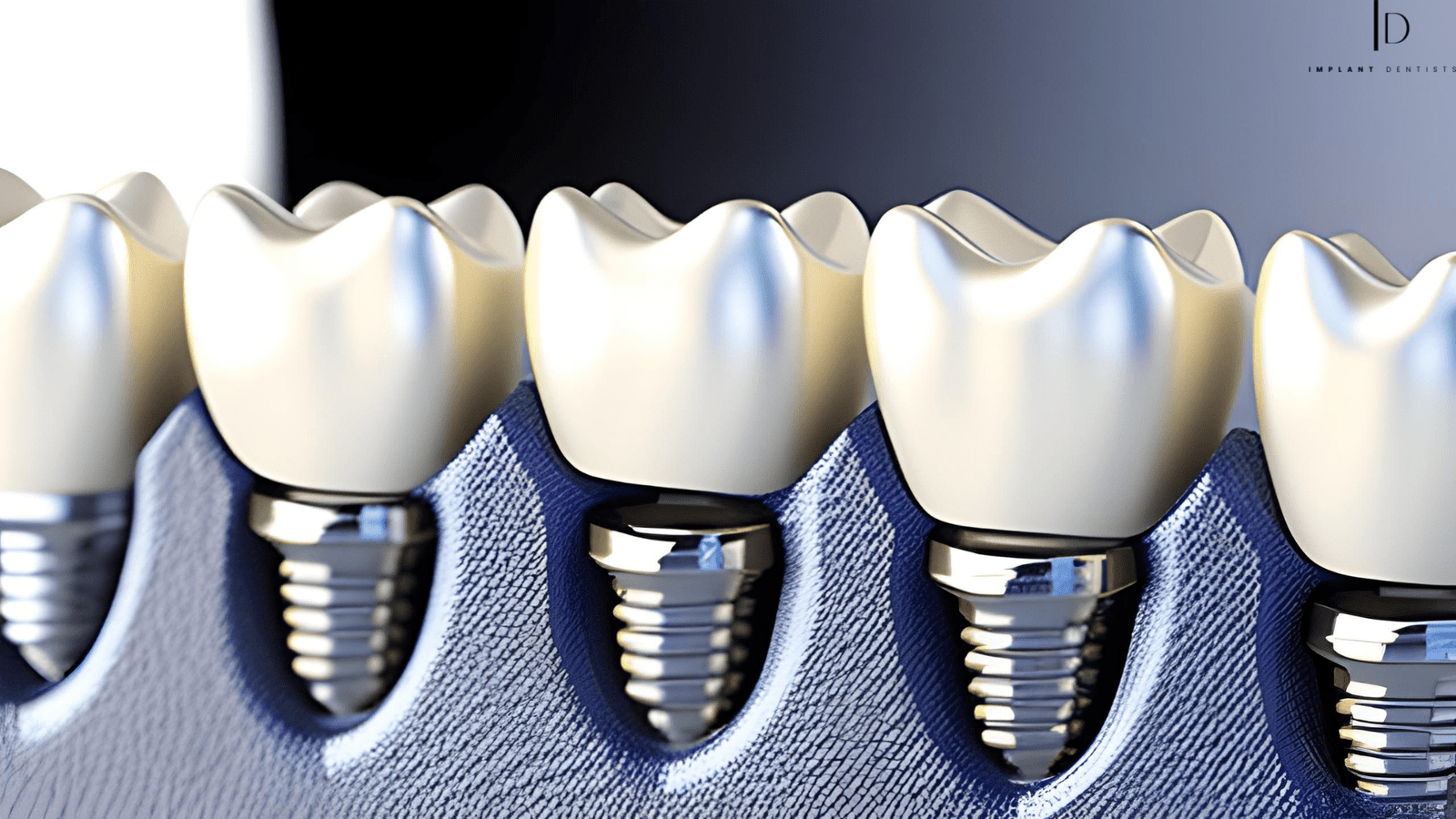
The Science Behind Dental Implants: Unveiling the Technology and Techniques
June 27, 2023Dental implants have transformed dentistry by offering a durable and practical replacement for lost teeth. This article aims to delve into the science behind dental implants, shedding light on the technology and techniques involved. By understanding the intricate processes and advancements in this field, patients can make informed decisions about their dental health and regain their smiles with confidence.
Understanding Dental Implants:
Artificial tooth roots called dental implants are inserted into the jawbone surgically. Composed of biocompatible materials, typically titanium, they fuse with the bone to provide a stable foundation for replacement teeth. This process is called osseointegration and is a critical factor in the success of dental implant procedures.
Implant Design and Materials:
Implants are meticulously designed to mimic the natural tooth structure. They consist of three main parts: the implant fixture, abutment, and prosthetic crown. The implant fixture serves as the artificial root, while the abutment acts as a connector between the fixture and crown. Different materials, such as titanium and ceramic, use for dental implants, each offer unique advantages.
Osseointegration – The Key to Success:
The success of dental implants lies in the process of osseointegration. Once the implant is placed, it integrates with the surrounding bone over time. The implant’s surface texture and structure play a crucial role in promoting osseointegration by enhancing bone cell attachment and growth. Recent advancements in implant surface technologies, such as nanostructures and coatings, have significantly improved osseointegration rates.
Computer-Aided Implant Placement:
Technological advancements have revolutionised dental implant procedures. Computer-aided implant placement techniques utilise advanced imaging technologies, such as cone-beam computed tomography (CBCT), to create detailed 3D models of the patient’s jaw. This enables dentists to plan the optimal placement of implants with precision, minimising risks and ensuring optimal functional and aesthetic outcomes.
Guided Implant Surgery:
Guided implant surgery combines computer-aided design and manufacturing (CAD/CAM) technologies with real-time surgical guidance. Using the 3D models, a surgical guide is created, which aids in accurate implant placement. This approach improves the efficiency and predictability of the surgery, reduces patient discomfort, and enhances overall treatment outcomes.
Immediate Implant Placement and Loading:
Dental professionals can place dental implants immediately after tooth extraction in certain cases. This approach, known as immediate implant placement, reduces treatment time and preserves the surrounding bone and soft tissue. With advancements in implant design and techniques, immediate loading of a temporary or permanent prosthesis onto the implant is also possible, providing patients with immediate aesthetic and functional benefits.
Advancements in Implant Materials and Surface Modifications:
Ongoing research and development have led to the emergence of new implant materials and surface modifications. Materials such as zirconia, a strong ceramic, offer excellent aesthetics and biocompatibility. Surface modifications, including nanotopography and bioactive coatings, aim to enhance osseointegration and promote faster healing.
Conclusion:
Dental implants have transformed the way we approach tooth replacement, combining scientific principles with technological advancements. The science behind single or full jaw dental implants, including osseointegration, implant design, computer-aided techniques, and material innovations, continues to evolve, offering patients improved treatment outcomes and long-term success. By understanding these advancements, individuals can make informed decisions about dental implant procedures, ultimately restoring their smiles and improving their quality of life.
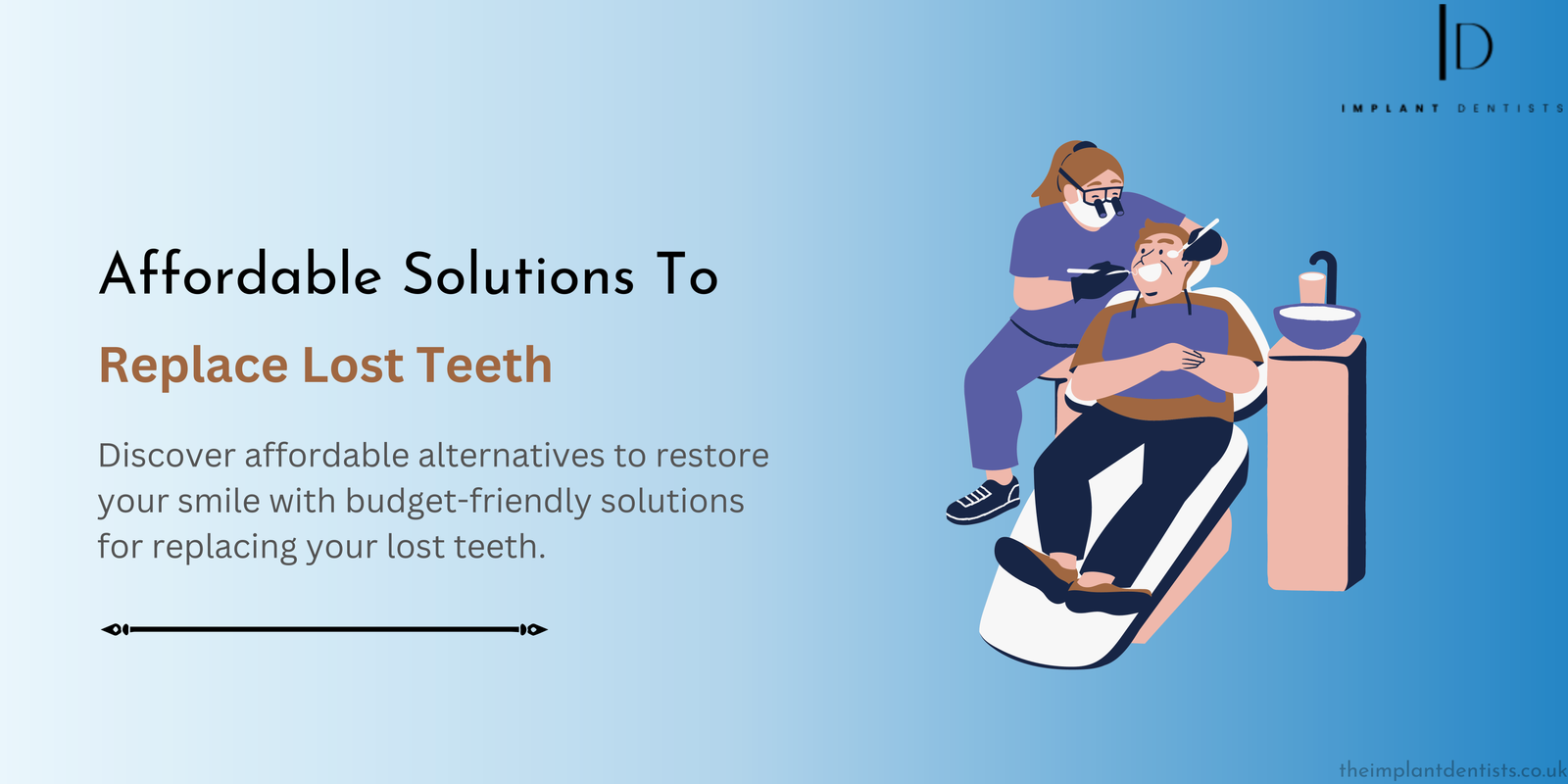
Budget-Friendly Solutions for Replacing Your Lost Teeth
June 16, 2023Losing a tooth can be a distressing experience that affects not only your oral health but also your self-confidence. Fortunately, there are budget-friendly solutions available to replace lost teeth and restore your smile. In this article, we will explore various options for tooth replacement that won’t break the bank. Whether you have lost a single tooth or multiple teeth, there are effective and affordable treatments to suit your needs.
Understanding Tooth Loss
Tooth loss can occur due to various reasons, including tooth decay, gum disease, injury, or ageing. Regardless of the cause, it is essential to address tooth loss promptly to prevent further complications. Missing teeth can lead to difficulties in chewing, speech problems, shifting of adjacent teeth, and a negative impact on your overall oral health.
Consequences of Tooth Loss
When a tooth is lost, the surrounding teeth may shift into the empty space, causing misalignment and bite issues. Additionally, the jawbone in the area of the missing tooth may begin to deteriorate due to lack of stimulation. This can result in further tooth loss and a change in facial structure over time. Therefore, it is crucial to consider tooth replacement options to maintain the health and aesthetics of your smile.
Dental Implants: A Long-lasting Solution
Dental implants are widely regarded as the gold standard for tooth replacement. They are durable, long-lasting, and provide excellent aesthetics and functionality. A dental implant consists of a titanium post that is surgically placed into the jawbone, acting as an artificial tooth root. Once the implant integrates with the bone, a dental crown is attached to the post, creating a natural-looking and fully functional tooth.
While dental implants may have a higher initial cost compared to other options, they offer exceptional longevity, often lasting a lifetime with proper care. This makes them a cost-effective solution in the long run. Furthermore, dental implants help preserve the integrity of the jawbone by stimulating bone growth through a process called osseointegration.
Dental Bridges: Bridging the Gap
A dental bridge is a non-removable prosthesis that fills the gap created by one or more missing teeth. It consists of dental crowns on the adjacent teeth to anchor the artificial tooth in place. Dental bridges can be an effective solution for replacing a single tooth or multiple adjacent teeth.
Dental bridges offer advantages such as restoring proper chewing function, improving speech, and enhancing the appearance of your smile. They are a more affordable alternative to dental implants, providing a fixed and durable tooth replacement option.
Dentures: A Removable Option
Dentures have been a popular choice for tooth replacement for many years. They are removable prosthetic devices that replace missing teeth and surrounding tissues. Dentures can be complete, replacing all the teeth in an arch, or partial, filling the gaps left by a few missing teeth.
While dentures may not offer the same level of stability as dental implants or bridges, they are a more affordable option for those on a budget. Modern dentures are designed to fit comfortably and provide a natural-looking smile. With proper care and regular adjustments, dentures can be a viable solution for replacing lost teeth.
Dental Veneers: Enhancing Your Smile
Dental veneers are thin, custom-made shells made of porcelain or composite resin that are bonded to the front surface of teeth. While primarily used for cosmetic purposes, veneers can also be utilised to restore the appearance of a single missing tooth or to close small gaps between teeth.
Veneers offer a conservative and cost-effective solution for improving the aesthetics of your smile. They are durable and resistant to staining, providing a long-lasting solution for enhancing the appearance of your teeth.
Partial Dentures: Affordable and Effective
Partial dentures are removable dental appliances used to replace one or more missing teeth when some natural teeth remain. They consist of artificial teeth attached to a metal or acrylic framework that blends with the natural teeth and gums. Partial dentures are an affordable and effective option for restoring your smile.
By filling the gaps left by missing teeth, partial dentures help maintain proper alignment, prevent adjacent teeth from shifting, and improve your ability to chew and speak. With advancements in dentistry, partial dentures now offer better aesthetics, comfort, and functionality.
Conclusion
Replacing lost teeth is essential not only for restoring your smile but also for maintaining proper oral health and functionality. Fortunately, there are budget-friendly solutions available to meet your specific needs. Whether you opt for cheap dental implants, dental bridges, dentures, dental veneers, or partial dentures, consult with your dentist to determine the most suitable option for you.
Remember to prioritise the long-term benefits and consider the durability, aesthetics, and functionality of each treatment. By exploring these budget-friendly solutions, you can regain your confidence and enjoy a beautiful, healthy smile once again. Don’t let tooth loss hold you back; take action and explore the options that can help you replace your lost teeth affordably and effectively.
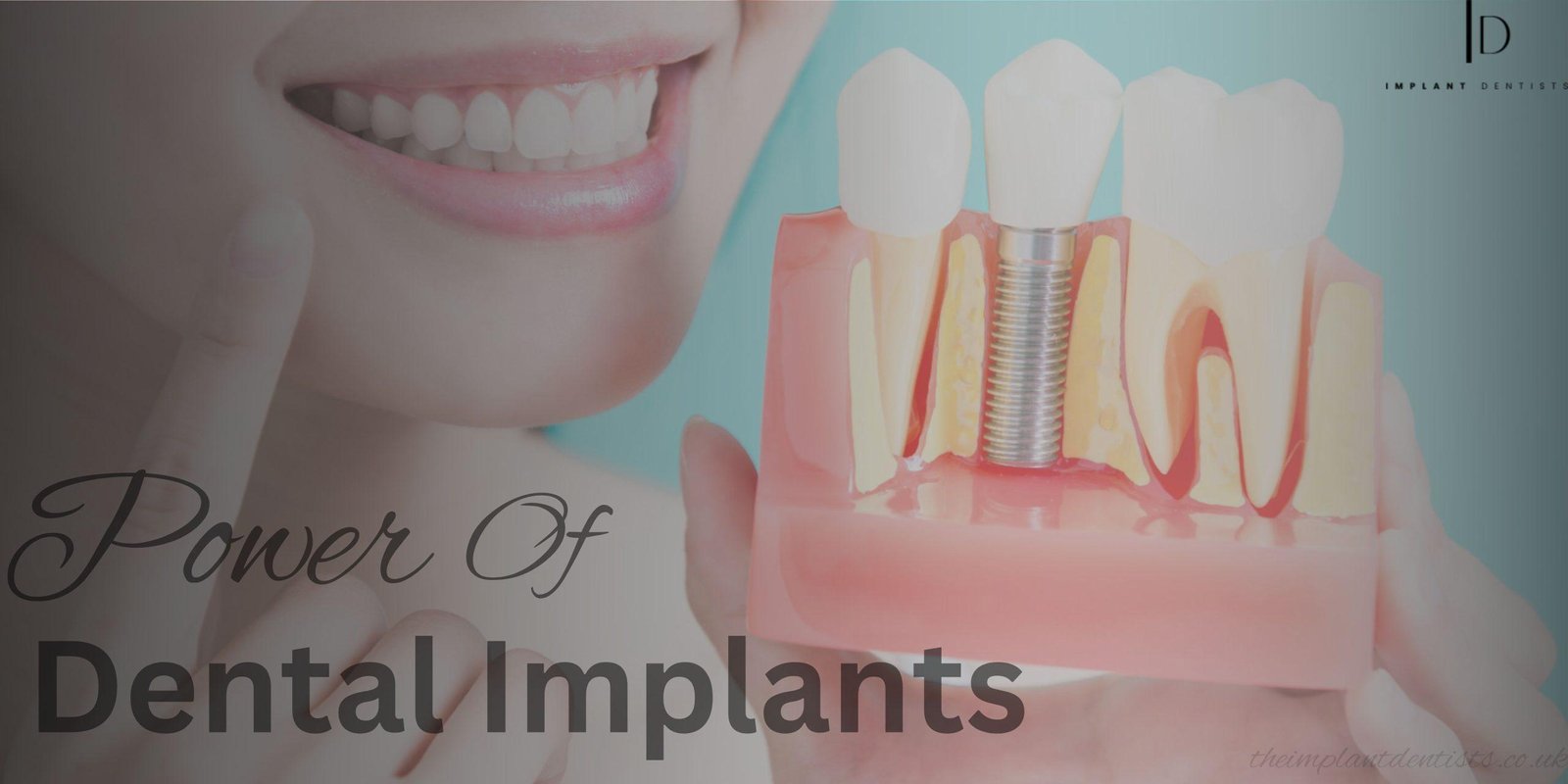
Enhance Your Smiles Through The Power of Dental Implants
June 5, 2023When it comes to enhancing smiles and restoring confidence, dental implants have revolutionised the field of dentistry. A durable and aesthetically pleasing option for replacing missing teeth is dental implants. They not only make your smile look better, but they also enhance the function and general health of your mouth. In this article, we will explore the power of dental implants and how they can transform your smile.
Benefits of Dental Implants
Dental implants offer numerous benefits that make them a popular choice for tooth replacement. Here are some key advantages:
- Improved Appearance: Dental implants look and feel like natural teeth, enhancing your smile and facial aesthetics.
- Enhanced Function: Implants function like real teeth, allowing you to eat, speak, and chew with confidence.
- Durability: With proper care, dental implants can last a lifetime, making them a cost-effective solution in the long run.
- Preservation of Jawbone: Implants stimulate the jawbone, preventing bone loss and maintaining the facial structure.
- No Damage to Surrounding Teeth: Unlike dental bridges, implants don’t rely on adjacent teeth for support, preserving their natural integrity.
- Convenience: Dental implants eliminate the need for messy adhesives or removal of dentures for cleaning, providing convenience and ease of maintenance.
The Dental Implant Process
The dental implant process typically involves several steps, which may vary depending on your specific case. Here is an overview of the process:
- Initial Consultation: During the first visit, your dentist will evaluate your oral health, review your medical history, and discuss your treatment goals. They will determine if you are a suitable candidate for dental implants.
- Treatment Planning: A comprehensive treatment plan will be developed based on your needs. This includes the number of implants required, the type of restoration, and any necessary preparatory procedures.
- Implant Placement: In the next stage, the implants will be surgically placed into the jawbone. This procedure is performed under local anaesthesia, ensuring your comfort throughout the process. The implants will then be left to heal and integrate with the bone over a period of several months.
- Abutment Placement: Once the implants have fully integrated, abutments, which are connectors between the implants and the replacement teeth, are placed. This minor surgical procedure requires a brief healing period.
- Restoration: Finally, custom-made dental crowns, bridges, or dentures are attached to the abutments, completing the implant restoration. Your dentist will ensure the restoration matches the colour, shape, and size of your natural teeth for a seamless and natural-looking smile.
Who Can Benefit from Dental Implants?
Dental implants are an excellent solution for individuals who have one or more missing teeth. However, not everyone may be a suitable candidate for the procedure. Ideal candidates for dental implants generally have:
- Good oral health and hygiene habits
- Sufficient jawbone density and volume
- Healthy gum tissues
- No uncontrolled systemic diseases that may interfere with healing
- A commitment to maintaining oral hygiene and regular dental visits
Your dentist will thoroughly evaluate your oral health and determine if dental implants are the right option for you.
Dental Implants vs. Other Tooth Replacement Options
While there are several tooth replacement options available, dental implants offer unique advantages over alternatives such as dentures or dental bridges. Here’s how dental implants compare:
Dental Implants vs. Dentures:
- Stability: Dental implants are securely anchored in the jawbone, eliminating the risk of dentures slipping or shifting.
- Bone Preservation: Implants stimulate the jawbone, preventing bone loss, which can occur with traditional dentures.
- Improved Chewing Efficiency: Implants function like natural teeth, allowing you to enjoy a wider range of foods without restrictions.
- Enhanced Speech: With implants, you can speak with confidence, as they don’t interfere with speech like some dentures can.
- Longevity: Dentures may need to be replaced or adjusted periodically, while implants can last a lifetime with proper care.
Dental Implants vs. Dental Bridges:
- Preservation of Adjacent Teeth: Dental implants do not rely on neighbouring teeth for support, preserving their natural structure.
- Improved Oral Hygiene: Dental implants can be brushed and flossed like natural teeth, making oral hygiene maintenance easier.
- Aesthetics: Implants provide a natural-looking and seamless smile, as they are individually placed to match the appearance of surrounding teeth.
- Durability: Fixed bridge dentals may require replacement after several years, while implants offer a more long-lasting solution.
Taking Care of Dental Implants
Proper care and maintenance are essential to ensure the longevity and success of dental implants. Here are some tips to keep your implants in optimal condition:
- Oral Hygiene: Brush your teeth at least twice a day and floss daily to remove plaque and food debris.
- Regular Dental Visits: Visit your dentist for routine check-ups and professional cleanings to monitor the health of your implants and surrounding tissues.
- Avoid Smoking: Smoking can hinder the healing process and increase the risk of implant failure.
- Protect Your Implants: Avoid biting or chewing on hard objects, as it can damage your implants and restorations.
- Maintain a Healthy Lifestyle: Adopt a well-balanced diet and practise good overall oral health habits to support the longevity of your implants.
Conclusion
Dental implants offer a transformative solution for enhancing smiles and restoring confidence. With their natural appearance, durability, and functionality, dental implants have become the gold standard in tooth replacement. By choosing dental implants, you can enjoy a beautiful, healthy smile that lasts a lifetime. If you’re considering dental implants, consult with a qualified dentist who can assess your individual needs and guide you through the process to achieve the smile you’ve always desired.
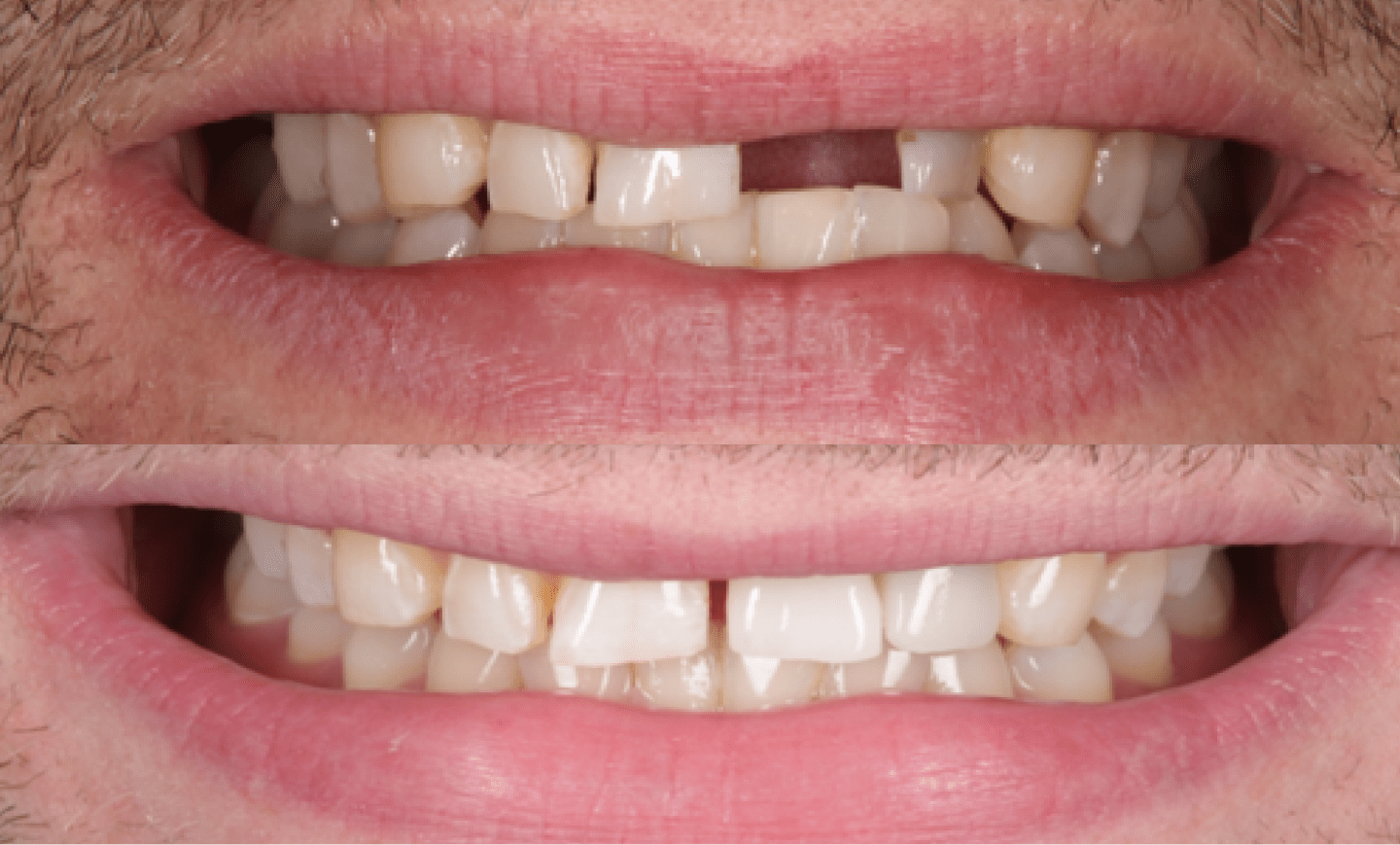
Dental Implants: A Permanent Solution for Missing Teeth
May 30, 2023Dental implants may be the long-term solution you’ve been searching for. With their ability to mimic the look and function of natural teeth, dental implants have become a popular choice for individuals seeking a permanent and fixed replacement option. In this blog, we will delve into the world of dental implants, exploring what they are, their indications, the implant procedure, and even the cost involved. If you’re ready to regain your confident smile and enjoy the benefits of a complete set of teeth, read on to discover why dental implants could be the ideal solution for you.
What are dental implants?
Dental implants are a long-term solution to missing teeth. They are made up of three parts: the implant itself, the abutment, and the crown. The implant is a small titanium post that is placed directly into the jawbone, where it fuses with the bone over time. The abutment is a connector that attaches to the implant and supports the crown. The crown is the visible part of the implant that looks and functions like a natural tooth.
What are the indications for dental implants?
Dental implants can be used to replace a single tooth, multiple teeth, or a full set of teeth in the lower or upper jaws. They are an excellent option for patients who want a permanent, fixed solution to missing teeth. Some of the indications for dental implants include:
- Missing teeth due to injury or trauma
- Tooth decay or gum disease that has led to tooth loss
- Congenital missing teeth
- Failed root canals or other dental procedures
- Age-related tooth loss
How are dental implants performed?
The first step in the dental implant process is a consultation with an experienced implant dentist, such as myself. During this consultation, we will discuss your medical history, examine your teeth and gums, and take x-rays or other imaging tests to determine whether dental implants are right for you.
If you are a good candidate for dental implants, the next step is to place the implant itself. This is done under local anaesthesia and is generally pain-free. After the implant is placed, there is a healing period of several months during which the implant fuses with the jawbone. Once the implant has fully fused, the abutment and crown can be attached.
At our practice, we work as part of the largest implant team in Stafford, and all of our implants are placed by experienced, qualified surgeons. We use the latest technology and techniques to ensure that our patients receive the best possible care.
How much do dental implants cost?
The cost of dental implants varies depending on a number of factors, including the number of implants needed, the complexity of the procedure, and the materials used. At our practice, affordable dental implants are priced from £2350. We also offer 0% interest payment plans to make the cost of treatment more manageable for our patients.
Book your free implant consultation today call 01785 818 037 quoting ‘Dr Kal’
If you are interested in dental implants, I encourage you to book a consultation with me at Abbey House Dental clinic in Stone, ST15 8NA link to the clinic . As a shortlisted Best Young Dentist UK, I have the experience and expertise to help you achieve a healthy, beautiful smile with dental implants.
